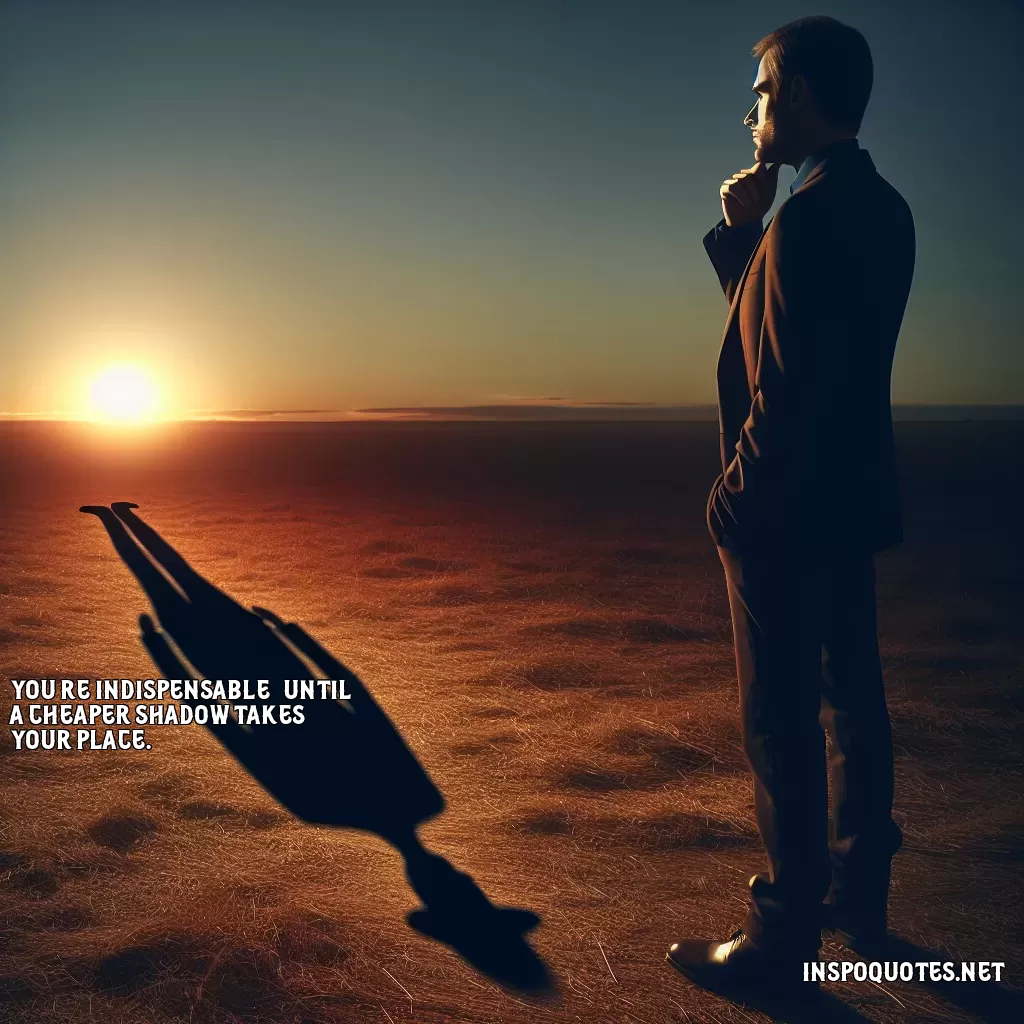
You’re indispensable – until a cheaper shadow takes your place.
Author: Adam Grant
👁️ 16 views
The quote "You’re indispensable – until a cheaper shadow takes your place" provides a poignant commentary on the nature of job security and value in the modern workforce. At first glance, it reflects a sense of cynicism about the perceived indispensability of individuals within a professional context. The term "indispensable" suggests that someone is so essential that their absence would cause significant disruption to the functionality of an organization or process. It implies a level of expertise, experience, or uniqueness that is seemingly irreplaceable. However, the addition of "until a cheaper shadow takes your place" introduces a contrast, highlighting the often harsh reality that financial considerations can overshadow personal or professional loyalty. Here, a "cheaper shadow" refers to an alternative – possibly less skilled but more cost-effective – person or solution that can fulfill the same role. In the corporate world, decisions regarding employment and resource allocation often prioritize cost-effectiveness, sometimes at the expense of retaining high-caliber talent. This perspective underscores a transactional view of employment relationships, where economic efficiency and profitability can lead to the replacement of even the most valued employees with less expensive alternatives. Thus, the quote serves as a reminder of the importance of adaptability and continuous skill enhancement. It encourages individuals to recognize and navigate the precarious balance between their current indispensability and the economic realities that could alter this status. Ultimately, it calls for a mindful approach to career development, emphasizing the need to stay relevant and valuable in an ever-evolving and cost-conscious marketplace.
Quote By: Adam Grant
Adam Grant is an influential American psychologist, author, and professor born on August 13, 1981, in West Bloomfield, Michigan. Renowned for his research in the fields of organizational psychology and behavioral science, Grant has made significant contributions to our understanding of workplace dynamics and the nature of success. He earned his Bachelor’s degree in Psychology from the Harvard University in 2003 before completing his Ph.D. in Organizational Psychology at the University of Michigan in 2006.
As a professor at the Wharton School of the University of Pennsylvania, Adam Grant has gained acclaim for his engaging teaching style and his ability to connect theory with practical application. His courses on leadership and organizational behavior have not only influenced students and future leaders but have also captured the attention of business executives worldwide. Adam Grant’s ability to translate complex psychological principles into actionable strategies has made him a sought-after speaker and consultant.
In addition to his teaching and research, Adam Grant is a prolific author. His bestselling books, including "Give and Take," "Originals," and "Think Again," have reached a global audience, exploring themes of generosity, creativity, and critical thinking. In "Give and Take," published in 2013, Grant argues that success is often determined not just by individual talent or hard work, but by how we interact with others. This book has sparked widespread discussions about the importance of collaboration and the power of helping one another.
Adam Grant's insights extend beyond academia. He has contributed to various publications, including The New York Times and The Harvard Business Review, sharing his research findings and perspectives on workplace culture, motivation, and leadership. His TED Talks have garnered millions of views, showcasing his ability to communicate complex ideas in an accessible manner.
In recognition of his impactful work, Adam Grant has been named one of the world's most influential management thinkers by Thinkers50 and has received numerous awards for his teaching and scholarship. As a thought leader, Adam Grant continues to inspire individuals and organizations to foster a culture of generosity and innovation, making a significant mark on the field of psychology and beyond.